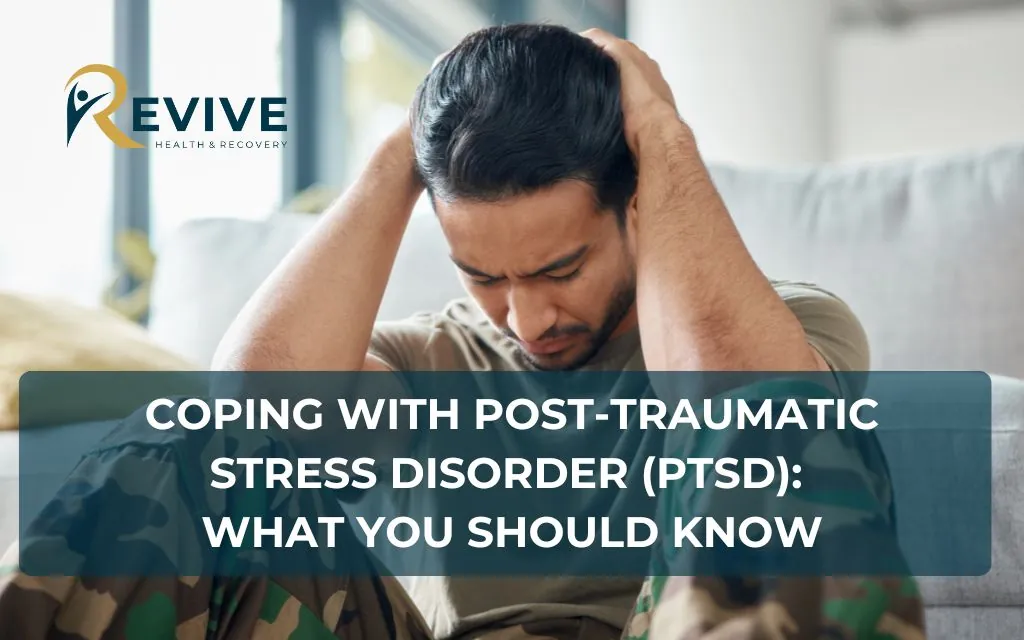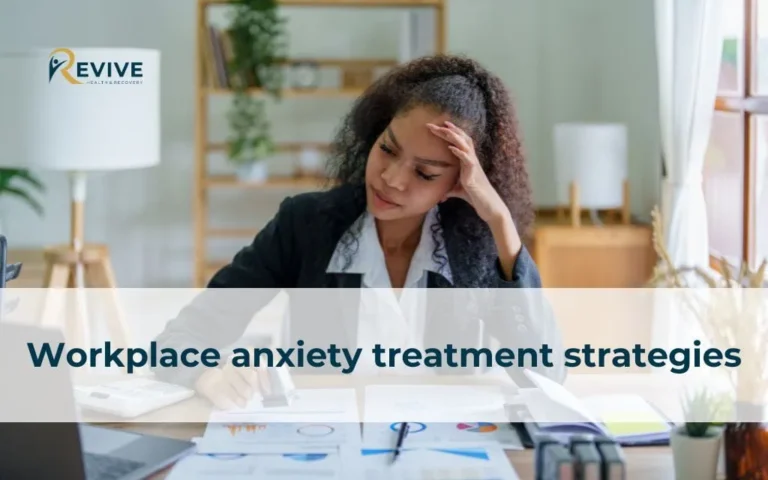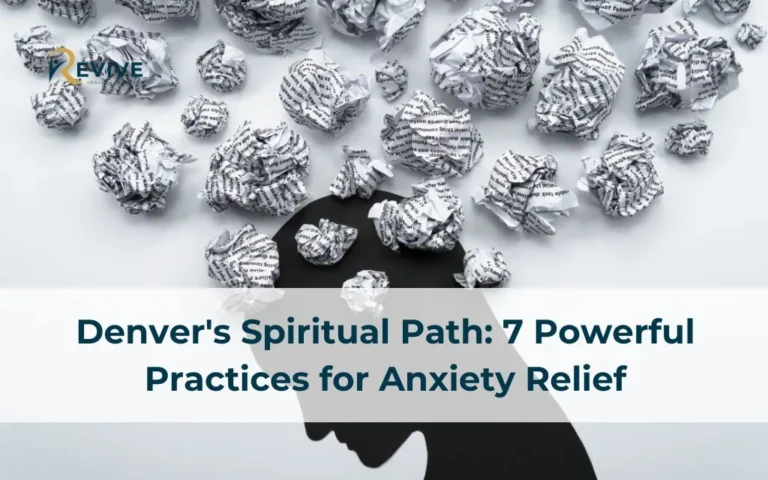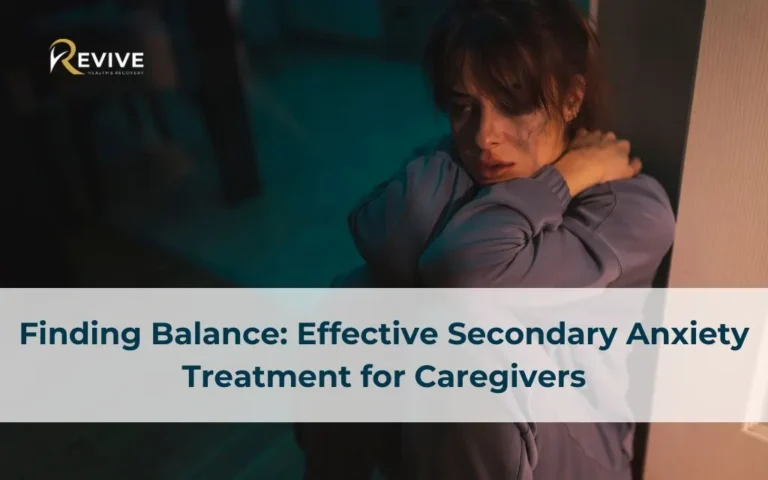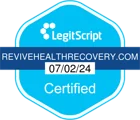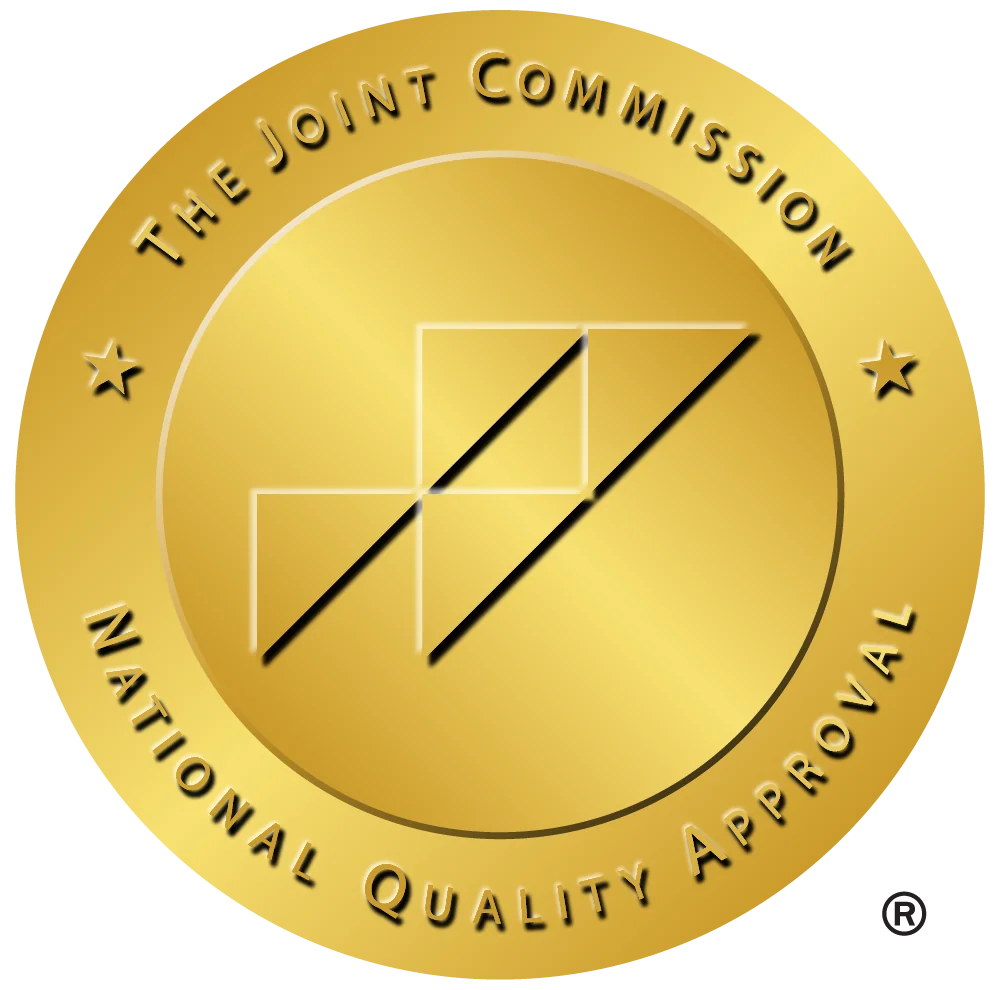Post Traumatic Stress Disorder (PTSD) affects approximately 7-8% of Americans during their lifetime. This condition develops after experiencing or witnessing traumatic events, fundamentally altering how individuals process memories and respond to stress. At Revive Health Recovery, we recognize that trauma manifests uniquely in each person, requiring personalized treatment approaches for effective trauma healing.
What is Post Traumatic Stress Disorder?
Post Traumatic Stress Disorder is a mental health condition triggered by experiencing or witnessing traumatic events. The human brain processes trauma differently than ordinary experiences, sometimes storing traumatic memories in fragmented, intense ways that intrude into everyday life. These intrusions can occur through flashbacks, nightmares, and overwhelming emotional responses when reminded of the trauma.
For a deeper understanding of how PTSD affects the brain, visit the National Institute of Mental Health’s overview.
PTSD affects people across all demographics, regardless of age, gender, or background. While originally recognized in military veterans (previously termed “shell shock” or “combat fatigue”), modern understanding acknowledges PTSD develops from various types of trauma including:
- Physical or sexual assault
- Serious accidents
- Natural disasters
- Medical trauma
- Childhood abuse
- Domestic violence
- First responder experiences
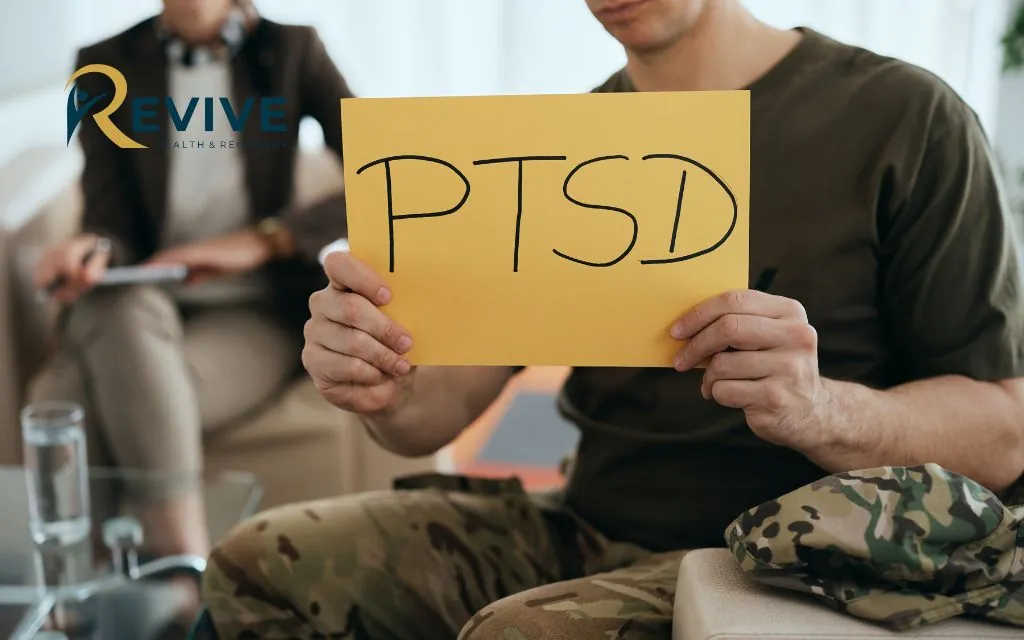
The Urgent Need for PTSD Treatment
Untreated PTSD creates profound and far-reaching consequences that extend beyond the initial trauma. The condition progressively infiltrates every aspect of a person’s existence – deteriorating physical health through chronic stress responses, fragmenting relationships through emotional withdrawal and irritability, diminishing career prospects through concentration difficulties, and eroding self-worth through persistent negative thoughts. Perhaps most alarmingly, untreated PTSD dramatically increases suicide risk while often leading to destructive self-medication through alcohol or substance use.
The compounding nature of these impacts creates a downward spiral where each deteriorating area of life reinforces others. What begins as manageable symptoms can transform into a comprehensive life crisis over time. This urgency makes early intervention critical – each day of effective treatment potentially prevents months or years of unnecessary suffering. With evidence-based treatments demonstrating remarkable effectiveness when applied appropriately, delaying treatment represents an unnecessary extension of trauma’s influence on your life.
Who Is at Risk for Developing PTSD?
While trauma exposure is unfortunately common, not everyone who experiences trauma develops PTSD. Several factors influence vulnerability:
- Occupation-Related Risk: First responders, military personnel, emergency medical workers, and journalists in conflict zones face repeated trauma exposure that increases PTSD risk.
- Trauma Type and Severity: Certain traumas carry higher PTSD risk, particularly those involving intentional harm by others (assault, abuse), perceived life threat, or witnessing harm to others, especially children.
- Previous Trauma History: Prior traumatic experiences, especially during childhood, significantly increase vulnerability to developing PTSD after subsequent trauma.
- Genetic and Neurobiological Factors: Research indicates some individuals have biological predispositions affecting stress hormone regulation and fear response that may increase PTSD susceptibility.
- Support System Availability: Limited social support following trauma emerges consistently as a risk factor, while strong support networks often serve as protective factors against developing PTSD.
- Pre-existing Mental Health Conditions: Individuals with previous anxiety disorders, depression, or substance use disorders face elevated risk of developing PTSD following trauma exposure.
Understanding these risk factors helps identify who might benefit most from early intervention and preventive approaches after trauma exposure.
Recognizing PTSD Symptoms
PTSD manifests through four primary symptom categories:
1. Intrusion Symptoms
- Recurrent, unwanted distressing memories
- Flashbacks (reliving the trauma as if it’s happening again)
- Nightmares related to the traumatic event
- Severe emotional or physical reactions to reminders of the trauma
2. Avoidance Behaviors
- Avoiding thoughts, feelings, or conversations about the trauma
- Steering clear of places, activities, or people that trigger memories
- Emotional numbing or detachment from others
- Loss of interest in previously enjoyed activities
3. Negative Changes in Thinking and Mood
- Persistent negative beliefs about oneself or the world
- Distorted thoughts about the trauma’s cause or consequences
- Difficulty experiencing positive emotions
- Feelings of detachment from family and friends
- Diminished interest in previously enjoyable activities
4. Changes in Physical and Emotional Reactions
- Being easily startled or frightened
- Hypervigilance (always on guard for danger)
- Self-destructive behavior such as substance use
- Trouble sleeping or concentrating
- Irritability, angry outbursts, or aggressive behavior
- Overwhelming guilt or shame
Many people experiencing PTSD also struggle with depression, anxiety, and substance use problems. Learn more about these symptoms and their connections at Mayo Clinic’s PTSD page.
If you notice these symptoms persisting for more than a month and interfering with daily functioning, seeking professional help becomes crucial. PTSD symptoms and treatment options vary for each individual, making personalized care essential for mental health recovery.
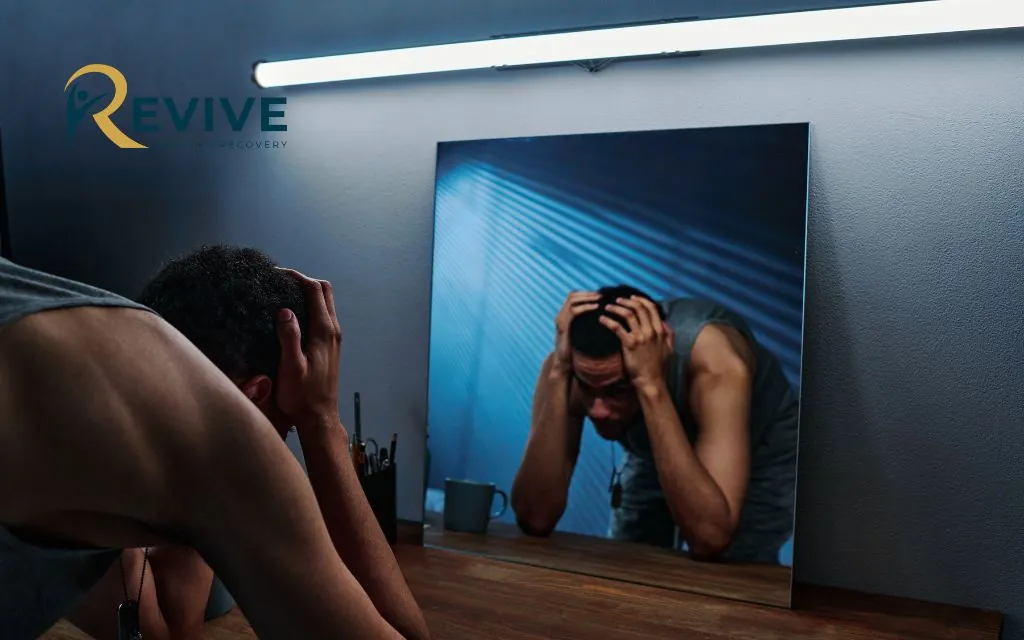
When to Seek Help for PTSD
Determining when to seek professional help for PTSD requires paying attention to several key indicators:
- Symptom Duration: While stress responses following trauma are normal, symptoms persisting beyond one month warrant professional evaluation. The transition from acute stress response to PTSD often occurs around this timeframe.
- Functional Impairment: When symptoms interfere with basic life functioning—affecting work performance, relationship stability, self-care abilities, or daily responsibilities – professional intervention becomes necessary.
- Safety Concerns: Immediate help is essential if you experience suicidal thoughts, develop plans to harm yourself or others, or find yourself using substances in dangerous ways to manage symptoms.
- Failed Self-Help Attempts: If you’ve attempted to manage symptoms through self-help strategies, support groups, or lifestyle changes without improvement, professional treatment is the appropriate next step.
- Escalating Symptoms: When symptoms worsen over time rather than gradually improving, or when new symptoms develop, this progression indicates the need for professional intervention.
- Concerned Feedback: Sometimes others notice concerning changes before we recognize them ourselves. Take it seriously when trusted people express worry about your well-being or behavioral changes.
Remember that seeking help represents strength, not weakness. Early intervention typically leads to more efficient recovery and prevents unnecessary suffering.
Read more about seeking help at Psychology Today’s PTSD guide.
Taking Action: Steps After Recognizing PTSD Symptoms
If you identify with PTSD symptoms, taking proactive steps can significantly impact your recovery trajectory:
- Acknowledge the Reality: Recognize that PTSD is a normal response to abnormal events, not a character flaw or sign of weakness. Your symptoms represent your brain’s attempt to protect you, even though they’re now causing distress.
- Reach Out for Professional Support: Contact Revive Health Recovery at (303) 268-4655 for a confidential assessment with specialists trained specifically in trauma recovery, or explore our PTSD treatment program for comprehensive, immersive care tailored to your needs. Our team provides a safe environment to discuss your experiences without judgment.
- Share with Trusted Supporters: While not replacing professional help, informing selected family members or friends about your struggles creates understanding and reduces isolation. Revive Health Recovery can help guide these conversations through family education programs.
- Prioritize Basic Self-Care: Maintain regular sleep schedules, healthy nutrition, and moderate physical activity even when motivation is low. These fundamental practices stabilize your nervous system and enhance treatment effectiveness.
- Learn Grounding Techniques: Simple strategies like deep breathing, sensory awareness exercises, and present-moment focus can help manage overwhelming emotions between treatment sessions. Our therapists will customize these techniques to your specific needs.
- Limit Re-traumatization: Temporarily reduce exposure to media, conversations, or environments that trigger trauma responses while developing stronger coping skills through treatment.
At Revive Health Recovery, we meet you exactly where you are in this process with a personalized treatment plan addressing your specific trauma history, symptom pattern, and recovery goals. Our integrated approach ensures you receive comprehensive support throughout your healing journey.

Finding PTSD Treatment in Denver
Denver offers numerous resources for PTSD treatment, with Revive Health Recovery standing at the forefront. When looking to find PTSD therapist Denver, consider:
Credentials and Specialization: Look for licensed mental health professionals (psychologists, psychiatrists, licensed counselors) with specific training in trauma treatment.
Treatment Approaches: Seek providers offering evidence-based therapies such as:
- Cognitive Processing Therapy (CPT)
- Eye Movement Desensitization and Reprocessing (EMDR)
- Prolonged Exposure Therapy (PE)
- Trauma-Focused Cognitive Behavioral Therapy (TF-CBT)
Insurance and Accessibility: Verify insurance coverage and session availability that accommodates your schedule.
At Revive Health Recovery, we offer comprehensive trauma treatment from experienced specialists. Our trauma-informed approach addresses both PTSD symptoms and any co-occurring conditions. For those seeking the best PTSD therapy in Denver, our center provides evidence-based interventions tailored to your unique needs.
Evidence-Based PTSD Treatments
Modern PTSD treatment involves several proven approaches:
- Cognitive Processing Therapy (CPT): This 12-session structured therapy helps patients identify and modify unhelpful thoughts related to trauma. CPT effectively reduces PTSD symptoms by addressing distorted beliefs about safety, trust, power, esteem, and intimacy.
- Eye Movement Desensitization and Reprocessing (EMDR): EMDR therapy uses bilateral stimulation (often eye movements) while processing traumatic memories. Learn more about our specialized EMDR therapy for complex trauma to address deeply rooted PTSD symptoms. This approach helps the brain reprocess traumatic memories, reducing their emotional impact and integrating them into normal memory networks.
- Prolonged Exposure Therapy (PE): PE gradually exposes patients to trauma-related memories, feelings, and situations in a controlled, safe environment. Through repeated exposure, patients learn that trauma reminders aren’t dangerous and don’t need to be avoided.
- Medication: Certain medications, particularly selective serotonin reuptake inhibitors (SSRIs), can help manage PTSD symptoms. These medications often work best when combined with psychotherapy.
- Ketamine-Assisted Psychotherapy: For treatment-resistant PTSD, ketamine therapy for complex PTSD has shown promising results, offering new hope for those who haven’t responded to traditional treatments. Revive Health Recovery offers ketamine-assisted psychotherapy Denver and IV ketamine infusion for PTSD Denver, providing hope for those who haven’t responded to traditional treatments.
Additionally, therapies like Somatic Experiencing focus on releasing trauma stored in the body, offering a unique approach to PTSD recovery.
How to Book an Appointment
Taking the first step toward healing from PTSD requires courage. Revive Health Recovery makes this step as straightforward as possible:
- Call our confidential helpline at (303) 268-4655
- Complete our online appointment request form on our website
- Speak with our intake coordinator who will match you with the appropriate specialist
- Receive a preliminary assessment during your first appointment
- Begin your personalized treatment plan
Most insurance plans cover PTSD treatment, and our staff will help verify your coverage before your first appointment. If you’re ready to take action, you can book appointment for PTSD treatment Denver today.
Revive Health Recovery
1427 S Federal Blvd, Denver, CO 80219
(303) 268-4655
contact@revivehealthrecovery.com
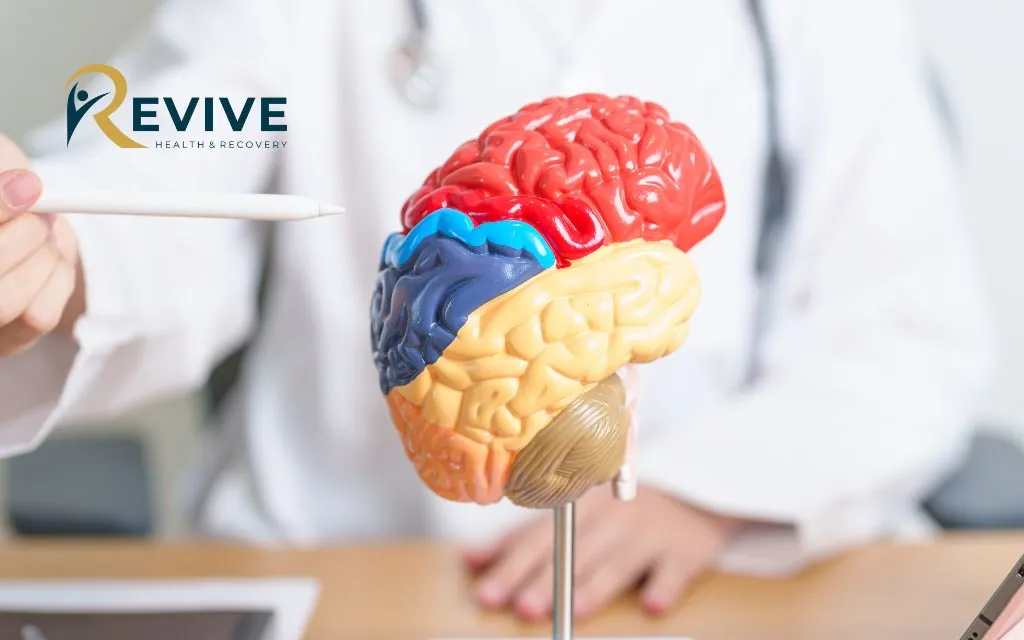
Living with and Beyond PTSD
Recovery from PTSD is possible. With appropriate treatment, support, and personal commitment, many people experience significant symptom reduction and improved quality of life. Recovery often involves:
- Developing Coping Skills: Learning techniques to manage triggers, reduce anxiety, and regulate emotions.
- Building Support Systems: Connecting with understanding friends, family, or support groups who provide encouragement during challenging times.
- Practicing Self-Care: Maintaining physical health through proper sleep, nutrition, and exercise, which supports mental health recovery.
- Continuing Growth: Many PTSD survivors report experiencing post-traumatic growth—finding new meaning, strength, and purpose through their recovery journey.
FAQs About Post Traumatic Stress Disorder
How do I know if I have PTSD or just normal stress?
While normal stress typically resolves once the stressor is removed, PTSD symptoms persist and interfere with daily functioning. A professional assessment at Revive Health Recovery can provide clarity about your symptoms and appropriate treatment options.
How long does PTSD treatment take?
Treatment duration varies based on individual needs and trauma complexity. Evidence-based therapies like CPT typically run 12-16 sessions, while other approaches may continue longer. Revive Health Recovery offers the most comprehensive PTSD treatment programs in Denver, tailoring treatment length to your specific needs.
Is medication necessary for PTSD treatment?
Not always. While some benefit from medication to manage symptoms, others respond well to psychotherapy alone. Revive Health Recovery specialists will help determine if medication would benefit your treatment plan, offering the best PTSD therapy in Denver with or without pharmaceutical support.
Can PTSD be completely cured?
Rather than “cure,” we focus on significant symptom reduction and improved functioning. Many patients experience substantial relief, with some reaching a point where they no longer meet diagnostic criteria for the disorder. Revive Health Recovery has helped numerous patients in Denver achieve lasting recovery from PTSD.
What makes ketamine therapy effective for PTSD?
Ketamine works differently than traditional medications, affecting glutamate receptors rather than serotonin. For treatment-resistant PTSD, ketamine therapy can provide rapid symptom relief, particularly for suicidal thoughts and depression that often accompany PTSD. Our ketamine-assisted psychotherapy Denver combines this innovative treatment with therapeutic processing for optimal results.
How do I support a loved one with PTSD?
Supporting a loved one involves learning about PTSD, encouraging professional treatment, practicing patience, and taking care of your own mental health. Revive Health Recovery offers family education and support services to help you effectively support your loved one while maintaining your wellbeing.
Reasons to Choose Revive Health Recovery for PTSD Treatment
Revive Health Recovery offers in-depth Professional Counseling and a variety of specialized treatments to support individuals with PTSD. Here’s why our center stands out as the premier choice for trauma treatment in Denver:
- Experienced Trauma Specialists: Our team consists of professionals who have not only academic expertise but personal experience overcoming similar challenges, bringing unparalleled empathy and understanding to your treatment.
- Holistic Recovery Approach: We address not just the symptoms of PTSD but the underlying triggers, building self-esteem and fostering resilience through a comprehensive treatment model.
- Personalized Treatment Plans: We recognize each person’s recovery path is unique and collaborate with you to develop a customized roadmap incorporating essential life skills and addressing your individual goals.
- Family-Centered Care: Our dedicated family services strengthen support systems crucial to long-term recovery success, keeping families informed and engaged throughout the healing process.
- Evidence-Based Innovation: Led by industry pioneers, we remain at the forefront of trauma treatment, continuously refining our services with proven strategies while incorporating cutting-edge approaches like ketamine therapy when appropriate.
Take the First Step Toward Healing
Post Traumatic Stress Disorder doesn’t have to control your life. With proper treatment and support, recovery is possible. Revive Health Recovery offers the comprehensive, compassionate care needed to address PTSD and reclaim your wellbeing.
Contact us today to learn more about our Colorado PTSD treatment programs or to schedule your confidential assessment. Our Denver location serves residents throughout Colorado with expert, evidence-based trauma treatment.
Your journey toward healing begins with a single step—reaching out for help. Revive Health Recovery stands ready to walk alongside you every step of the way.
